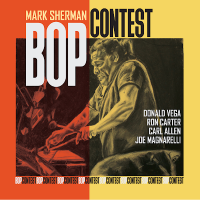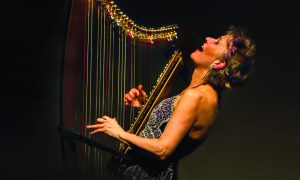The Princeton Record Exchange just off of Nassau Street was founded by Barry Weisfeld in 1980. The store sells more than 140,000 LPs, CDs and DVDs. The town of Princeton may be best known as home to the University, but a store just off of Nassau Street has garnered fame of its own. The Princeton Record Exchange, a local icon since Barry Weisfeld founded the shop in 1980, was rated the top record store in the country by GQ magazine in 2009.
While other music stores have been closing their doors in the face of competition from online music sources, the Princeton Record Exchange maintains a steady stream of customers who come to peruse the 140,000 LPs, CDs and DVDs that cover the walls and are stacked in every available spot, searching for a great find.
Weisfeld's mission is simple: “We want to place unwanted music and movies into the hands of music-lovers and movie-lovers who can appreciate them all over again," he said.
His foray into the music industry began in college when he worked as a DJ for a college radio station and at clubs. “To make a long story short, I graduated, went to a couple of suit-and-tie interviews and said, “Screw this, it isn't for me,'" he explained.
Weisfeld began buying records for a nickel or a dime at flea markets, and he quickly spotted an ideal market: college students. Living out of his van, Weisfeld set up his record business at college bookstores. In December 1976, he met the manager of the Princeton University Store—which used to have a sizeable music department—while selling records at the Rutgers' student center. The manager invited Weisfeld to set up a table at the store, and the event was successful enough that Weisfeld kept coming back.
When he decided to open his own store a few years later, Weisfeld debated between Princeton and his hometown on Long Island for the location. While Long Island's big-city environment might attract more customers, the University's presence tipped the scales in Princeton's favor.
“In Princeton I saw a real town, where students and faculty would walk around and maybe it wouldn't be so dependent on people driving," Weisfeld explained. “Of course, I didn't know at the time how global it would become. We get visitors from all over because there aren't that many stores that do it right." Weisfeld added that a dozen of the employees have been working at the store since 1993.
Employees said that while they do see traffic from students and faculty, many of their visitors see the Princeton Record Exchange as their primary destination.
“There's a guy who drives in from Maryland every Thursday just to see what's new," one employee noted.
Princeton students who frequent the store have a much easier trek and cited the low prices and huge selection as major attractions.
“I was just walking around Nassau and was excited to see something other than restaurants and designer clothing stores," Christian Birky '13 said. “I went in and stayed for a couple hours, just going through all the old vinyl. I had never seen so much in one place."
“The fact that they have very cheap products makes it very accessible," Caroline Murakami '13 noted. “I can go in and get a huge stack of CDs and it's not that big of a deal."
Despite the student-friendly prices—including the “cheap wall" of CDs for $1.99 or $2.99—Weisfeld said that college students aren't his main customers anymore.
“We would do much more business with students if there was no way to obtain it online, but we can't turn back the clock," he said. “How many people do you know who buy records or CDs today? They steal music off the Internet."
Online music is the latest in a series of technological challenges the store has had to adapt to during its 30 years of operation. While other record stores have shut down, Weisfeld said that the Record Exchange's established reputation, as well as the sheer quantity of merchandise it sells, allow for its continued success.
“The size of the collection keeps me coming back," Birky said. “They have everything from the hottest artists to soundtracks of old movies you've never heard of."
Though students said they obtained some of their music online, they also noted that the Internet cannot replicate the experience of physically going to a record store.
Murakami said that when others ask why she goes to the Record Exchange rather than popular downloading sites, she says that it's a source of pride that Princeton has the top record store in the country.
“If you are a music lover, there is something about the sanctity of a CD store, of actually walking through the aisles," Murakami explained. “It's a great way to be introduced to new music."
For Birky, the physical product has a draw as well. “There is something fun about taking out an old record and playing it. Vinyl is a more total experience that brings consumers closer to the artist in a way that digital downloads isn't able to."
























